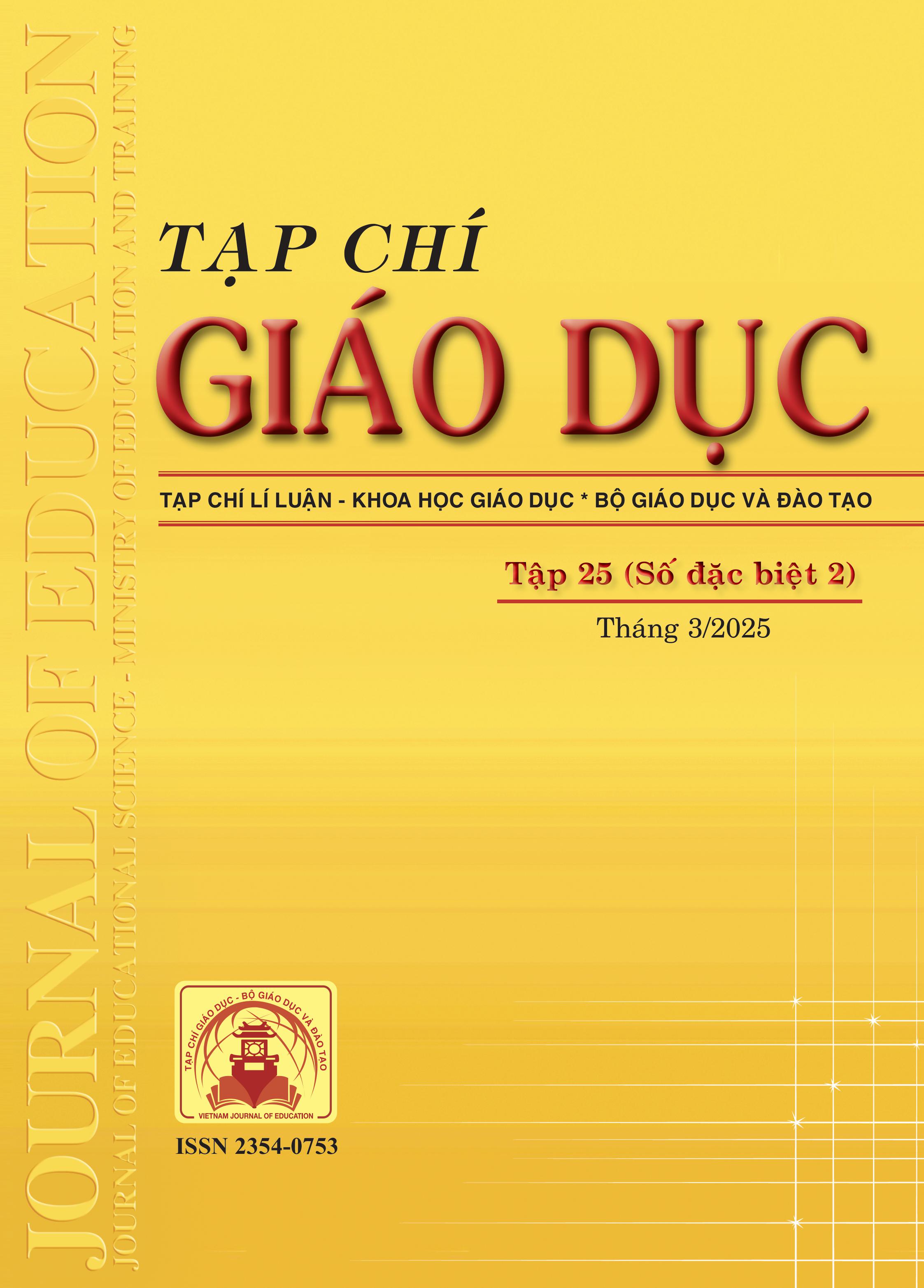Áp dụng “mô hình DMGA” với sự hỗ trợ của công nghệ thông tin và phần mềm trên điện thoại nhằm cải thiện điểm nói IELTS cho sinh viên Khoa Quốc tế, Trường Đại học Giao thông vận tải
Tóm tắt
When being compared with other language skills, speaking is described as the most challenging to most students of International Students of UTC. Although MOET has issued the National Foreign Languages Project 2030 on English teaching innovation, with a special focus on developing oral communicative competence (MOET, 2008), not much improvement has been shown on students’ speaking scores. The article conducts a research to find out students’ difficulties in achieving high scores in IELTS speaking tests when applying DMGA model with the assistance of technology and mobile apps and how these technology devices can help to improve their speaking performance. The article also suggests that teachers should include some techniques of scaffolding talk as introduced by Farida and Rozi’s (2022) such as engaging, exploring, explaining, elaborating and evaluating to push students more autonomous speakers and better express themselves.
Tài liệu tham khảo
Amirnejad, A. (2015). The effect of using cell phone video recording features on Iranian EFL learers’s fluency. Scholars Journal of Arts, Humanities and Social Sciences, 3(4B), 927-933.
British Council, IELTS Australia, University of Cambridge (2004). IELTS Handbook 2005. UCLES. Creswell, J. W., & Creswell, J. D. (2017). Research Design: Qualtive, quantitive & mixed methods approaches (5th Ed.). SAGE Publications.
Eshankulovna, R. A. (2021). Modern Technologies and Mobile Apps in Developing Speaking Skill. Linguistics & Culture Review, 5(S2), 1216-1225. https://doi.org/10.21744/lingcure.v5nS2.1809
Farida, L. A., & Rozi, F. (2022). Scaffolding Talks in Teaching Speaking Skill to Higher Education Students, Why not? Asia Pendidikan, 2(1), 42-49. https://doi.org/10.53797/aspen.v2i1.6.2022
Hashimova, S. A. (2021). Some features of teaching some professional skills and abilities of using a foreign language. International Journal of Linguistics, Literature and Culture, 7(4), 335-338.
Hong, T. D., & Nguyen H. B. (2019). Teacher beliefs and practices of scaffolding student’s reading comprehension through questioning at pre-reading stage. European Journal of Foreign Language Teaching, 4(2), 72-92.
Kayi- Aydar, H. (2013). Scaffolding language learning in an academic ESP classroom. ELT Journal, 67(3), 324-335.
Nyandra, M., Kartiko, B. H., Susanto, P. C., Suprigati, A., & Suryasa, W. (2018). Education & training improve quality of life & decrease depression score in elderly population. Eurassian Journal of Analytical Chemistry, 13(2), 371-377.
Nguyen, T. T. H., & Pham, T. T. M. (2016). Difficulties in Teaching English for Specific Purposes: Empirical Study at Vietnam Universities. Higher Education Studies, 6(2), 154-161. https://doi.org/10.5539/hes.v6n2p154
Nguyen, T. U. N., & Alsaqqaf, A. (2023). Impact of a DMGA Scalfolding- Based Module on Improving the EFL Speaking Skill among Vietnamese ESP Learners. Arab World English Journal, 14, 342- 357.
Nguyen, T. U. N., & Alsaqquaf, A. (2022). Investigating ESP Learners’ Difficulties in EFL Speaking: DMGA Scaffolding Model as a Proposed Solution. Proceedings International Conference on Teaching and Education (ICoTE), 38-44.
Nguyen, T.U.N., Alsaquaf, A., & Said, N. (2022). Impact of virtual DMGA scalfoding based module on improving the EFL speaking skills among ESP Vietnamese learners: A proposal. Internationl Conference on Language, Literature and Culture (ICLLC).
Poorahmadi, M. (2009). The Effect of Employing Scaffolding Strategies and Classroom Talks in Reading Comprehension. Journal of Teaching English as a Foreign Language & Literature, 1(3), 87-106.
Renshaw, P. D. (2013). The social cultural and emotional dimensions of scaffolding. Learning, Culture & Social Interaction, 2, 56-60. https://doi.org/10.1016/j.lcsi.2013.01.002
Shanini, G., & Shahamirian, F. (2017). Improving Enlgish Speaking Fluency: The Role of Six Factors. Advances in Language & Literary Studies, 8(6), 100-104. https://doi.org/10.7575/aiac.alls.v.8n.6p.100
Tiangco, J. A. N. Z. (2020). Deconstructing the evolving roles of Engish language educators on the 21st century. International Journal of Linguistics, Literature & Culture, 6(4), 49-61.
Trinder, J. (2005). Mobile technologies and systems. In: Kukulska-Hulme, A. & Traxler, J. (eds.) Mobile learning: A Handbook for Educators and Trainers (pp. 7-24). Routledge.
Wood, D. J., Bruner, J. S., & Ross, G. (1976). The role of tutoring in problem solving. Journal of Child Psychiatry and Psychology, 17, 89-100. https://doi.org/10.1111/j.1469-7610.1976.tb00381.x
Đã Xuất bản
Cách trích dẫn
Số
Chuyên mục
Giấy phép

Tác phẩm này được cấp phép theo Ghi nhận tác giả của Creative Commons Giấy phép quốc tế 4.0 .












